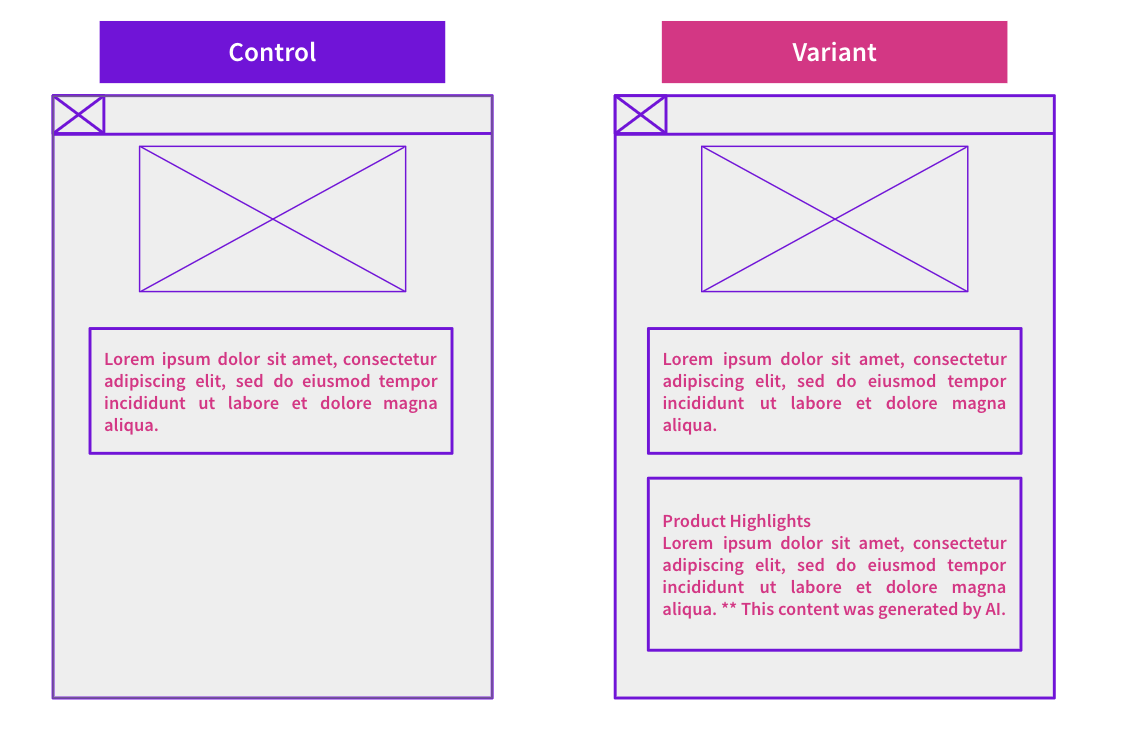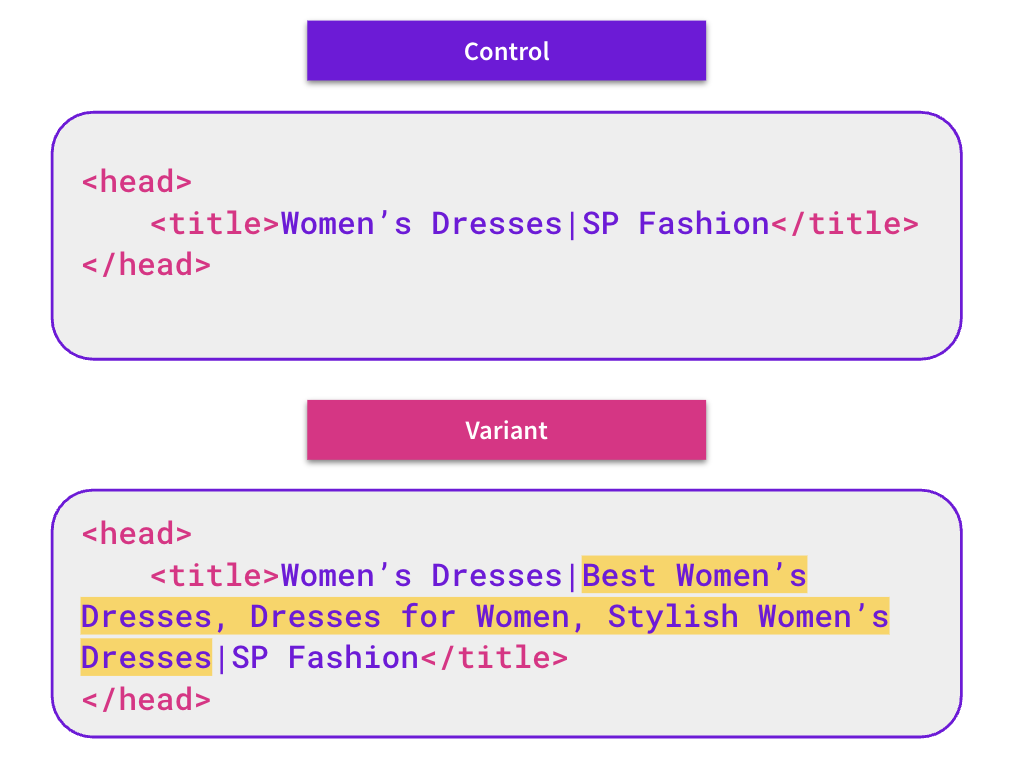The Case Study
While we can do SEO keyword research, it’s not always clear how competitive you’ll be in each of the long-tailed variations of a major keyword. While keyword research data reveals monthly searches for queries / phrases, that doesn’t always equate to more or less organic traffic to your site. The extra variable here is that you don’t know how competitive your page will rank in each of the long tailed queries.
The customer in focus this week has a large collection of product pages. Each of these Product Detail Pages (PDP) contain a subdirectory of product information pages with support content for each product. They published this content to target variations of long-tailed searches to maximize their keyword coverage for each of the products and associated searches.
In particular, the pages targeted cost comparison keywords like: “Compare Prices of Baden Basketballs vs. Alternatives”. They decided to test “generalizing” the title tag to target broader terms with higher search volume, to see if there was more traffic associated with targeting more general keywords with the page's title tag, since the page contained a lot more helpful content than just cost comparisons.
We hypothesized that removing 'Compare' from the title tag would allow the page to continue to rank for ‘compare’ keywords while also being more likely to be shown for other search queries. This change would also result in an increase to organic search traffic.
It was also noted that because the removal of the keyword did also change the character count, it could impact how the titles are displayed in the search results if Google respected the title tags. This test was run while Google was rewriting title tags.
What was changed
We settled on a variant title tag template that removed the ‘Compare’ long-tail focus keyword from the title tag, also reducing the character count of the title tag.
 Results
Results
This test resulted in a statistically significant and positive impact to organic traffic, with an estimated 24% increase in organic sessions at 95% confidence.

The result of this experiment is strong evidence that the hypothesis was correct. Whether it was a reduction of the title tag character count, the removal of the ‘Compare’ keyword, or a mixture of both, our test measured a substantial result proving the variant title tag template to be the winner in this experiment. After ending the test we did see examples of Google respecting the new title tags in search results. Therefore, making it possible that the variant template had a better click-through rate associated with it.
After the test had run, the website utilized SearchPilot’s MetaCMS to publish the winning title tag template to the site to gain some additional traffic while waiting on their development team to implement the changes themselves.
If you want a refresher on how title tags impact SEO, the different ways to implement them, and examples of real-world SEO test case studies on title tag changes, then check out this blog post.





